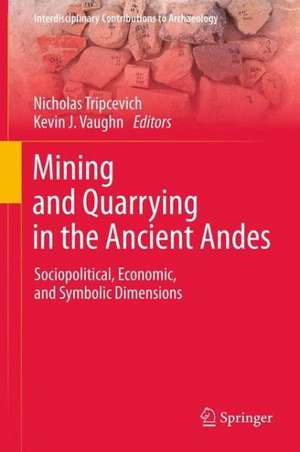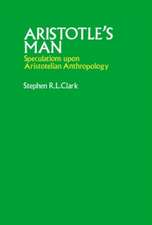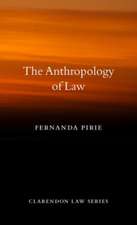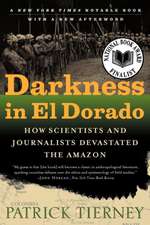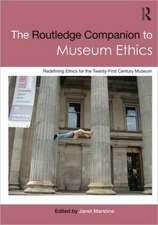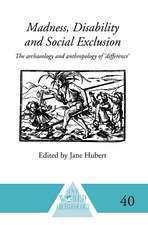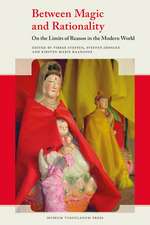Mining and Quarrying in the Ancient Andes: Sociopolitical, Economic, and Symbolic Dimensions: Interdisciplinary Contributions to Archaeology
Editat de Nicholas Tripcevich, Kevin J. Vaughnen Limba Engleză Hardback – 6 dec 2012
| Toate formatele și edițiile | Preț | Express |
|---|---|---|
| Paperback (1) | 643.84 lei 6-8 săpt. | |
| Springer – 28 ian 2015 | 643.84 lei 6-8 săpt. | |
| Hardback (1) | 649.06 lei 6-8 săpt. | |
| Springer – 6 dec 2012 | 649.06 lei 6-8 săpt. |
Din seria Interdisciplinary Contributions to Archaeology
- 24%
 Preț: 805.80 lei
Preț: 805.80 lei - 20%
 Preț: 817.73 lei
Preț: 817.73 lei - 15%
 Preț: 644.95 lei
Preț: 644.95 lei - 20%
 Preț: 630.26 lei
Preț: 630.26 lei - 15%
 Preț: 646.94 lei
Preț: 646.94 lei - 18%
 Preț: 962.49 lei
Preț: 962.49 lei - 15%
 Preț: 649.54 lei
Preț: 649.54 lei - 15%
 Preț: 583.43 lei
Preț: 583.43 lei - 15%
 Preț: 646.94 lei
Preț: 646.94 lei - 18%
 Preț: 960.61 lei
Preț: 960.61 lei - 15%
 Preț: 584.90 lei
Preț: 584.90 lei - 15%
 Preț: 518.92 lei
Preț: 518.92 lei -
 Preț: 404.13 lei
Preț: 404.13 lei - 15%
 Preț: 646.62 lei
Preț: 646.62 lei - 18%
 Preț: 948.27 lei
Preț: 948.27 lei - 15%
 Preț: 650.04 lei
Preț: 650.04 lei - 15%
 Preț: 645.60 lei
Preț: 645.60 lei - 18%
 Preț: 778.42 lei
Preț: 778.42 lei - 18%
 Preț: 1118.62 lei
Preț: 1118.62 lei - 18%
 Preț: 945.13 lei
Preț: 945.13 lei - 18%
 Preț: 1121.76 lei
Preț: 1121.76 lei - 18%
 Preț: 957.44 lei
Preț: 957.44 lei - 15%
 Preț: 644.95 lei
Preț: 644.95 lei - 15%
 Preț: 648.89 lei
Preț: 648.89 lei - 18%
 Preț: 949.55 lei
Preț: 949.55 lei - 18%
 Preț: 946.39 lei
Preț: 946.39 lei - 18%
 Preț: 967.40 lei
Preț: 967.40 lei - 18%
 Preț: 950.33 lei
Preț: 950.33 lei - 15%
 Preț: 641.38 lei
Preț: 641.38 lei - 18%
 Preț: 1232.71 lei
Preț: 1232.71 lei - 15%
 Preț: 648.24 lei
Preț: 648.24 lei - 15%
 Preț: 644.82 lei
Preț: 644.82 lei - 18%
 Preț: 2127.22 lei
Preț: 2127.22 lei - 18%
 Preț: 957.62 lei
Preț: 957.62 lei - 15%
 Preț: 586.37 lei
Preț: 586.37 lei - 18%
 Preț: 1230.66 lei
Preț: 1230.66 lei - 18%
 Preț: 1422.77 lei
Preț: 1422.77 lei - 18%
 Preț: 962.35 lei
Preț: 962.35 lei - 18%
 Preț: 1231.16 lei
Preț: 1231.16 lei - 15%
 Preț: 641.71 lei
Preț: 641.71 lei - 15%
 Preț: 649.06 lei
Preț: 649.06 lei - 18%
 Preț: 952.40 lei
Preț: 952.40 lei - 15%
 Preț: 645.96 lei
Preț: 645.96 lei
Preț: 649.06 lei
Preț vechi: 763.60 lei
-15% Nou
Puncte Express: 974
Preț estimativ în valută:
124.20€ • 129.94$ • 103.17£
124.20€ • 129.94$ • 103.17£
Carte tipărită la comandă
Livrare economică 02-16 aprilie
Preluare comenzi: 021 569.72.76
Specificații
ISBN-13: 9781461451990
ISBN-10: 146145199X
Pagini: 368
Ilustrații: XIV, 354 p.
Dimensiuni: 155 x 235 x 25 mm
Greutate: 0.66 kg
Ediția:2013
Editura: Springer
Colecția Springer
Seria Interdisciplinary Contributions to Archaeology
Locul publicării:New York, NY, United States
ISBN-10: 146145199X
Pagini: 368
Ilustrații: XIV, 354 p.
Dimensiuni: 155 x 235 x 25 mm
Greutate: 0.66 kg
Ediția:2013
Editura: Springer
Colecția Springer
Seria Interdisciplinary Contributions to Archaeology
Locul publicării:New York, NY, United States
Public țintă
ResearchCuprins
Chapter 1: Mining and Quarrying in the Andes: Economic, Political, and Symbolic Dimensions. .-PART I: STONEChapter 2: Quarrying and Production at the Quispisisa Obsidian Source.- Chapter 3: Variation in Inca Building Stone Quarry Operatoins in Ecuador and Peru.-Chapter 4: Building Taypikala: Changing Patterns of Stone Procurement and the Production of Twianaku Monumentality.-PART II: CLAYS AND MINERALS.-Chapter 5: Arcillas and Alfareros: Clay and Temper Mining Practices in the Lake Titicaca Basin.-Chapter 6: The Huarhua Rock Salt Mine: Possible Archaeological Implications of Modern Salt Extraction Practices.-Chapter 7: Hunter-Gatherer-Fisher Mining During the Archaic Period in Coastal Northern Chile.-Chapter 8: The Structure and Organization of Mining in Nasca from the Early Intermediate Period Through the Middle Horizon: Recent Evidence from Mina Primavera.- PART III: METALS.-Chapter 9: Amalgamation and Small-Scale Gold Mining in the Ancient Andes.-Chapter 10: Silver Mines of the Northern Lake Titicaca Basin, Peru.-Chapter 11: The Organization of Copper Mining During the Late Period in the Loa River, Northern Chile.-Chapter 12: Mining of Copper and Copper-Bearing Minerals in Ancient Peru: New Evidence from the Upper Ica Valley.-Chapter 13: Mining Archaeology in the Nasca and Palpa Region, South Coast of Peru.-PART IV: THE BROADER CONTEXT OF MINING AND QUARRYING IN THE ANDES.-Chapter 14: Written by Richard Burger.-Chapter 15: Written by: Izumi Shimada.
Recenzii
From the reviews:
“Tripcevich and Vaughn compiled this volume for a comparative analysis of mining and quarrying, a rare undertaking in Andean studies. … Andeanists and those interested in the extraction and processing of solid materials from the earth in any world region will find much of value in this volume. … all the chapters offer valuable new information that may serve as a baseline for future studies.” (Kylie E. Quave, Lithic Technology, Vol. 39 (1), 2014)
“Tripcevich and Vaughn compiled this volume for a comparative analysis of mining and quarrying, a rare undertaking in Andean studies. … Andeanists and those interested in the extraction and processing of solid materials from the earth in any world region will find much of value in this volume. … all the chapters offer valuable new information that may serve as a baseline for future studies.” (Kylie E. Quave, Lithic Technology, Vol. 39 (1), 2014)
Notă biografică
Dr. Nicholas Tripcevich is a member of the Archaeological Research Facility at the University of California, Berkeley. His research interests include Andean prehistory, social complexity, exchange theory, ethnoarchaeology, ancient mining, GIS, and lithic analysis. Dr. Kevin J. Vaughn is an Associate Professor in the department of Anthropology at Purdue University. His research interests include the emergence of social complexity, political economies of middle-range societies, craft production, ancient mining, village and household archaeology, the anthropology of pilgrimage, provenance analysis, archaeometry (INAA, LA-ICPMS, XRD, stable isotopes), ceramic analysis, Andean South America, Nasca.
Textul de pe ultima copertă
From stone for building to metal ores for ceremonial display, extracting mineral resources from the earth played a central role in ancient Andean civilizations. Despite this, the sites that supported these activities have rarely been a source of interest to archaeologists, and comparative analysis between mines and quarries and their features has been exceedingly rare.
Mining and Quarrying in the Ancient Andes focuses on the primary extraction of a variety of materials that, in many cases, were used by cultures like the Inca, Wari and Tiwanaku in well-studied sites. The book delves into the broader mining practices that link diverse materials for a fascinating tour of the social and economic life of the prehispanic period, and of ancient technologies, some of which are still in use. Through the politics of the societies, the practical engineering issues of mineral extraction, and the symbolic nature of the locations, readers are given a broader context of mining and quarrying than is usually seen in the literature. Here, too, is a wide variety of sites, materials, and time periods, including:
Mining and Quarrying in the Ancient Andes focuses on the primary extraction of a variety of materials that, in many cases, were used by cultures like the Inca, Wari and Tiwanaku in well-studied sites. The book delves into the broader mining practices that link diverse materials for a fascinating tour of the social and economic life of the prehispanic period, and of ancient technologies, some of which are still in use. Through the politics of the societies, the practical engineering issues of mineral extraction, and the symbolic nature of the locations, readers are given a broader context of mining and quarrying than is usually seen in the literature. Here, too, is a wide variety of sites, materials, and time periods, including:
- Technological and social aspects of obsidian procurement focusing on the Quispisisa source.
- Variation in Inca building stone quarry operations in Ecuador and Peru.
- Clay and temper mining practices in the Lake Titicaca Basin.
- Pigment extraction from Chile to southern Peru from the early Holocene through the Early Intermediate Period.
- The Huarhua rock salt mine: archaeological implications of contemporary salt extraction practices.
- Later pre-Hispanic (including Inca) mining with consideration of technical, ceremonial and political context.
- Shifts in architectural stone quarrying during state expansion at Tiwanaku
Caracteristici
Uses comparative analysis between major archaeological mining and quarrying sites throughout the Andes Places evidence of primary extraction activities within a larger cultural context Contains two synthesizing discussion chapters at the conclusion of the book Includes supplementary material: sn.pub/extras
